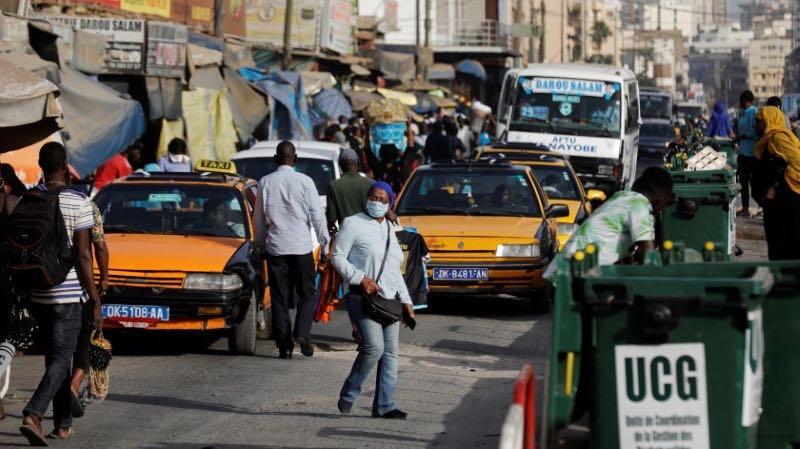As European countries scramble to close their internal borders, African countries are shutting their borders with Europe, which has become the epicenter of the novel coronavirus pandemic.
More than 9,300 people have died from COVID-19 since the beginning of the outbreak in late December, but Africa has been one of the last continents to be touched by the virus. And so far, it’s been spared from the worst of it. Many worry that might be changing as confirmed cases of the virus continue to rise in Africa. This week alone, Tanzania, Benin, Liberia and Somalia confirmed their first cases.
Related: How ‘war’ with coronavirus could lead to lasting government overreach
While experts initially anticipated African countries would be vulnerable due to their close business and travel links with China, Europe and the US have proved to be the main source of the pandemic’s initial cases.
“Mostly, we saw Europeans coming back for work in Africa and then, of course, importing the disease,” said Dr. Mary Stephen, a technical officer at the World Health Organization’s Africa office in Brazzaville, Republic of the Congo, which also recently confirmed its first case. According to the Congolese government, the person was a dual French and Congolese citizen who had flown from Paris earlier this month.
“As the outbreak evolved, we also saw Africans coming back from holidays … and other travels in all those areas with local transmission,” Dr. Stephen explained.
As the cases grew in South Africa, the country’s President Cyril Ramaphosa declared a national state of disaster over the weekend and announced a travel ban on visitors coming from countries with high rates of community transmission, including Italy, the United States, Iran and South Korea. The South African president also announced he would cancel visas from the target countries.
South Africa’s National Institute for Communicable Diseases (NICD) has confirmed cases from individuals traveling from all of those countries, and has recently recorded instances of community transmission.
Kenya’s President Uhuru Kenyatta went a step further during his national address, announcing “the government is suspending travel for all persons coming into Kenya from any country with reported Coronavirus cases.” He continued, “only Kenyan citizens and foreigners with valid residence permits will be allowed to come in,” provided they self-quarantine.
A flood of other African countries have since announced similar travel restrictions in recent days, including Nigeria and Sudan, in addition to other measures like closing schools and limiting public gatherings.
During a press conference on Thursday, the World Health Organization’s regional Africa director Dr. Matshidiso Moeti reiterated that the WHO is not recommending restricting travel, and encourages countries to “minimize isolation of countries” as they seek to isolate the virus itself.
Related: Russia is trying to spread a viral disinformation campaign
She went on to suggest travel restrictions might have unintended consequences down the line, such as hindering the movement of medical goods and health personnel in the region.
Still, countries might be trying to buy time to contain the cases they do have before the number of cases explode and overwhelm health care systems as they have in other parts of the world.
Dr. Stephen says at this stage, containment remains a top priority. “Containment will depend on early detection, isolation of the cases, tracking all the contacts and monitoring them for 14 days,” she said.
African countries, in partnership with WHO Africa and the Africa Centers for Disease Control and Prevention (ACDC) have been preparing for COVID-19 since the beginning of the outbreak in China, according to Dr. Stephen. “Within one month, we have moved from two reference laboratories in two countries to 40 countries that are able to now test and confirm COVID-19.”
Yet testing capacity, which has proven to be a global challenge, remains small in most African countries. According to Dr. Stpehen, the WHO initially supplied countries with enough reagents to perform about 100 to 200 tests, while others have since scaled to 500.
That could also soon change with the help of private donations.
This week, Chinese billionaire philanthropist Jack Ma announced his foundation would donate tens of thousands of test kits, masks and medical suits to each of the 54 countries in Africa.
A lab in Senegal is also reportedly collaborating on a new test for the coronavirus that could cut the test time down to 10 minutes. The test could be available within the next three months.
Rapidly scaling up this testing capacity will be crucial for tracking the number of COVID-19 cases as they increase.
Related: US still ‘doing poorly’ on coronavirus testing, Harvard epidemiologist says
Dr. Stephen remains optimistic that African countries still have a chance to contain the coronavirus before it gets out hand and overwhelms local health care systems as it has elsewhere.
“Not just a chance, a very good chance for containment. We wouldn’t say it’s out of hand yet,” she said, noting how countries that dealt with the Ebola epidemic have stronger groundwork for dealing with outbreaks.
Related: Aid worker released from Iranian prison amid COVID-19 fears
In the end, however, containing the coronavirus will come down to not only the successful detection, isolation and monitoring of existing cases, but also preventing new ones by addressing long-standing issues such as sanitation and water supply, which are often lacking among vulnerable and marginalized populations.
Our coverage reaches millions each week, but only a small fraction of listeners contribute to sustain our program. We still need 224 more people to donate $100 or $10/monthly to unlock our $67,000 match. Will you help us get there today?
